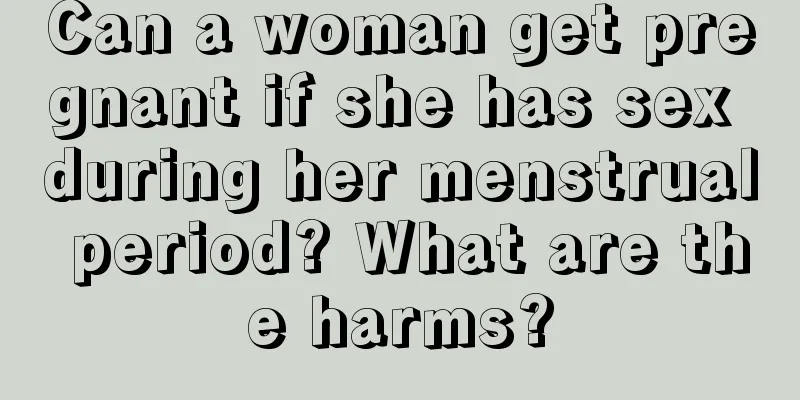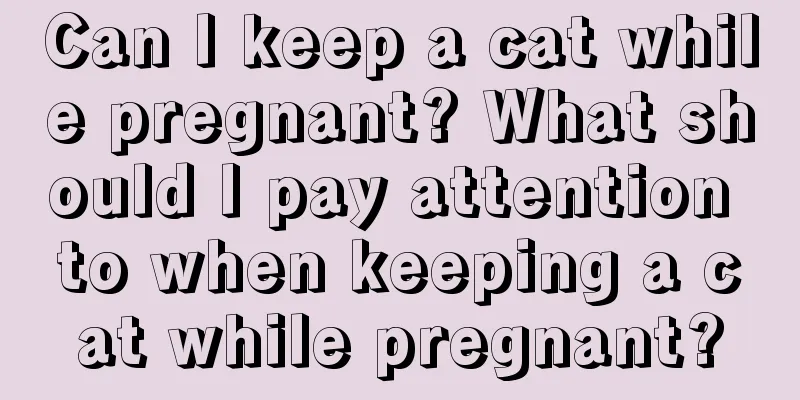Can the baby continue to eat after spitting up milk? Can the baby continue to feed after spitting up milk?

|
It is a common phenomenon for babies to spit up milk. Many babies will have this phenomenon after they are full. However, babies may become hungry again after spitting up milk. So can we feed them again? So let's find out whether babies can eat again after spitting up milk. Can we feed babies again after spitting up milk? Can the baby still eat after spitting up milk?If the baby spits up, the mother can stop feeding the baby first. After the baby spits up, it is best to observe the baby's body first. If the amount of spitting up is not much, and the baby's spirit is not particularly bad, and there are no complications of fever and diarrhea, then it can be determined that this is physiological spitting up, not pathological spitting up. As long as the baby is willing to eat, you can continue to feed. After the baby spits up, mothers should change the method appropriately when feeding the baby next time. Appropriately reduce the amount of feeding and reduce the speed of feeding. It is best to gently pat the baby's back after the baby finishes feeding to promote the discharge of air in the stomach and prevent the baby from spitting up again. If the baby spits up a lot of milk, and the baby's spirit is not very good, and the mood is not stable enough, it is recommended that mothers stop for half an hour and let the baby's emotions calm down before feeding. After feeding the child, you can gently hold the baby and pat his back, and don't let the baby sleep immediately. Can I feed my baby again after he spits up?After the baby spits up, you should observe the child's physical condition. If the amount of spitting up is not much, and the baby is in a particularly good spirit, and there are no symptoms such as fever and diarrhea, for physiological spitting up, as long as the child is willing to eat, you can continue to feed. But appropriately reduce the amount of feeding and reduce the speed of drinking milk. After feeding, it is best to pat the baby's back gently to promote the discharge of air in the stomach and avoid spitting up again. If the child spits up a lot of milk, it is recommended to consider feeding after half an hour, so that the baby's stomach and intestines can recover and the mood can be stable before feeding. After feeding the child, do not put the child down to sleep immediately. Hold the child for a while first to let the child digest the food, so that it is not easy to spit up milk. If the child still spits up milk, it is necessary to determine the cause of the child's spitting up milk and whether there is a problem of indigestion. Generally, you can feed after spitting up. But after feeding, hold the child upright and put him down after burping. Because the cardia of children is different from that of adults, it is soft, not much strength, and easy to spit up milk. So. Eat small meals frequently, don't let the child eat too much at one time. Baby spitting up milk but still wants to eatNewborn babies are fed on demand, not at fixed times or places, and they eat when they are hungry. If the baby still wants to eat, parents should still feed the baby. It is the instinct of babies to stop eating when they are full, so don't worry about the baby being full. Babies will spit up milk before they are four or five months old. This is related to the physiological position of the baby's stomach. Compared with adults, the baby's stomach is horizontal. When the baby changes position after feeding, or the position of holding is wrong, or gas enters the stomach during feeding, vomiting milk will occur. Parents can hold the baby upright after the baby finishes feeding, lean on the adult's shoulder, and pat the baby's back. The parent's hand is hollow to reduce the vibration of the baby's lungs. The order is from bottom to top until the baby hiccups, then hold the baby upright for 20 minutes and lay the baby flat. Be sure to turn the baby's face to one side to prevent sudden vomiting of milk from choking the trachea or flowing into the ears. Can I burp my baby if he/she spits up milk?Burping can reduce the occurrence of milk regurgitation. When babies feed too quickly or inhale some air, because the baby's stomach capacity is small, the stomach is horizontal, the stomach bottom is straight, and the cardia sphincter at the entrance is not as developed as the pylorus at the exit, the stomach entrance is loose and the exit is tight, causing the baby to easily regurgitate milk. Burping can help them expel the inhaled air, relieve stomach pressure, and thus reduce the chance of regurgitation. |
Recommend
How to deal with various discomforts in the third trimester? Which rumors about pregnancy are wrong?
During pregnancy, many pregnant women will experi...
Can alcohol wipes be used to wipe the face? Can alcohol wipes be used to wipe wounds?
Alcohol wipes are a type of wet wipes that are co...
Can pregnant women eat vermicelli? Precautions for pregnant women to eat vermicelli
Vermicelli is a staple food that we often eat in ...
How many internal examinations should be done before giving birth? What other embarrassing examinations are there before giving birth?
Prenatal checkups are normal for expectant mother...
Is it good to get pregnant in summer? What are the benefits of getting pregnant in summer?
The temperature in summer is usually very high, w...
How effective is Manting anti-mite facial cleanser? Is Manting anti-mite facial cleanser useful?
Manting is a brand that specializes in removing m...
What should parents do when their children exhibit aggressive behavior?
During the process of educating children, if the ...
How to solve the problem of infant intestinal bloating? What causes infant intestinal bloating?
Because babies are born not long ago, their stoma...
How long does it take for the wound to heal completely and how long does it take for the stitches to be absorbed?
We all know that mothers may suffer from tearing ...
Does it hurt to breastfeed after childbirth? How long does the pain last?
The development of breast milk after childbirth i...
What's wrong with my baby who always rubs his eyes with his hands? How to deal with itchy eyes?
Many careful mothers will find that babies love t...
What clothes should babies wear in October? What clothes should babies wear in October?
In October every year, the weather has changed si...
Can a one-month-old baby eat cod liver oil?
Babies can take cod liver oil after they are one ...
What causes urinary tract infection in babies? What causes repeated urinary tract infection in babies?
Urinary tract infection is a hidden disease. If a...
How much does an oxytocin injection cost? Does an oxytocin injection have any side effects?
After waiting for so long for the baby to come ou...









